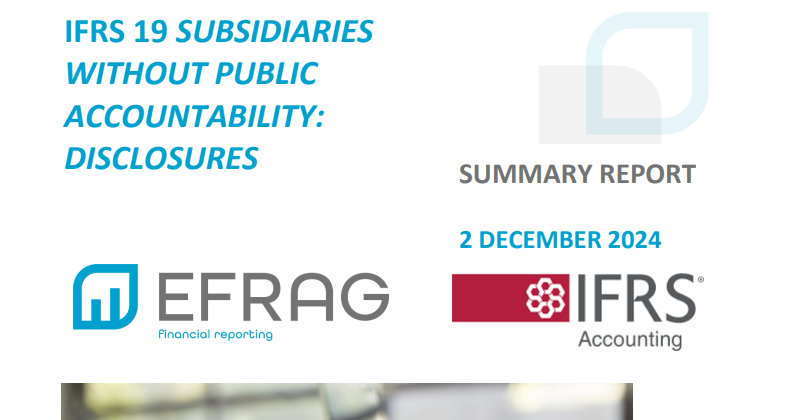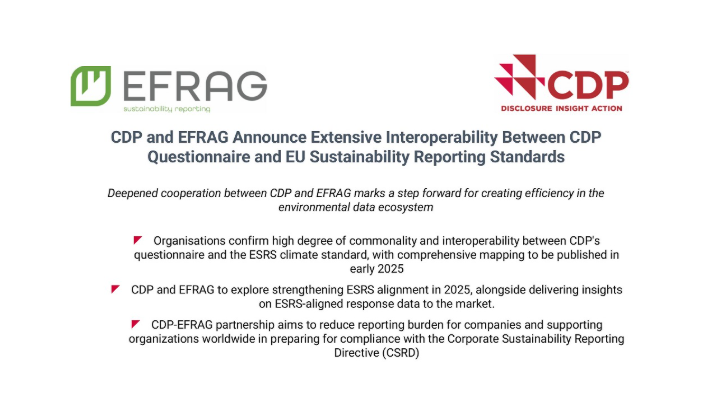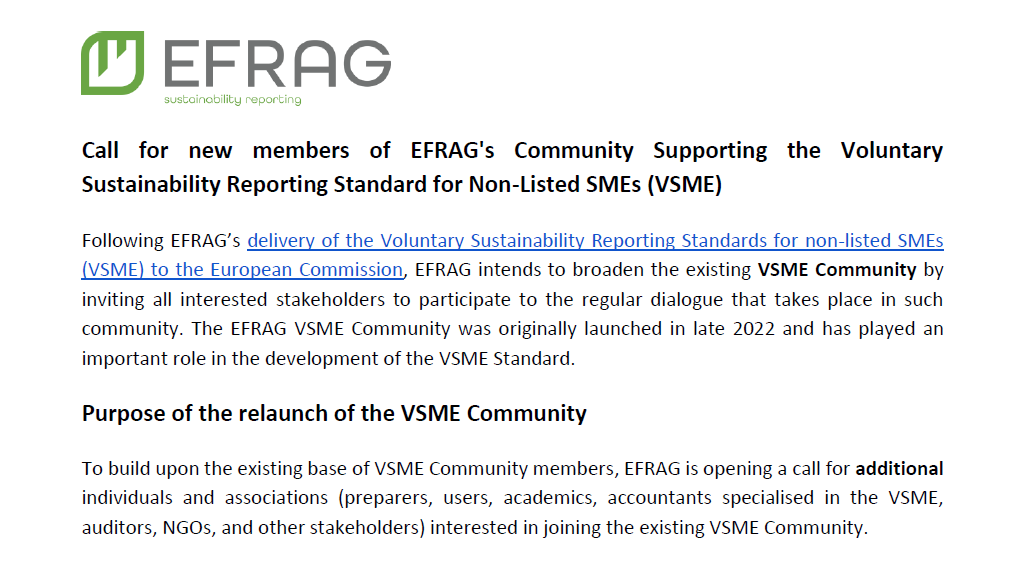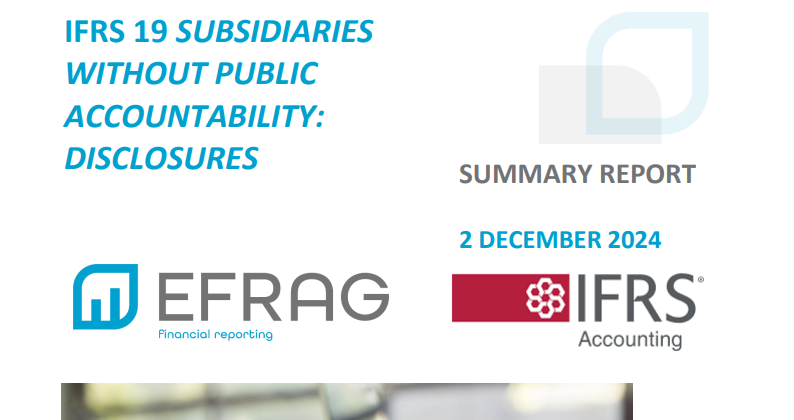EFRAG Discusses the Implementation of IFRS 19: Key Takeaways from the Educational Session
EFRAG recently published a brief report on the IFRS 19 educational session held on 2 December 2024, which focused on the application of the standard for non-publicly accountable subsidiaries and its potential implications for European companies. The session covered key topics, including the EU approval process, the benefits of IFRS 19 in reducing disclosure requirements, and its impact on small and medium-sized enterprises. The draft consultation paper is expected to be released in the first half of 2025, with a final decision from the European Commission anticipated by September 2025. Stakeholders expressed strong support for the standard, highlighting its potential to streamline financial reporting and reduce costs, while also acknowledging the challenges of adapting to local reporting requirements.

In January 2025, EFRAG has released a report summarising the educational session on IFRS 19, the IASB’s reduced disclosure standard, held on 2 December 2024. The event gathered experts and representatives from organisations to discuss the application of the standard "Subsidiaries Without Public Accountability: Disclosures" and its potential implications for European companies.
Please refer to the report for a detailed overview of the key aspects of the standard and the opinions of the professional community.
Key Discussion Topics
Participants reviewed the main benefits of the standard, such as reduced costs for implementing systems and processes, simplified financial reporting for subsidiaries, and the potential for standardising reporting formats. It was noted that IFRS 19 could significantly ease the transition to IFRS standards, particularly for companies with limited resources.
EU Perspectives
Representatives from European organisations highlighted that the implementation of IFRS 19 would require alignment with EU legislative requirements and harmonisation with accounting directives. EFRAG is conducting a thorough cost-benefit analysis of the standard, including an assessment of its impact on small and medium-sized enterprises.
Panel Participants’ Views
Experts discussed the benefits of the standard for corporate governance and auditing, including cost reductions and the standardisation of requirements at the group level. However, challenges were also noted, such as the need to adapt ERP systems, ensure compliance with local reporting requirements, and manage potential impacts on auditor interactions.
EU Approval Process
EFRAG representatives outlined the plans for concluding the approval process of IFRS 19 in the EU. The draft consultation paper is expected to be published in the first half of 2025, with the European Commission's final decision potentially being made in September 2025. It is important to note that the final implementation of the standard will depend on its alignment with the EU’s technical and legal criteria, as well as an assessment of its public benefit.
Attendees actively discussed questions regarding the impact of the standard on cost reductions, efficiency at the subsidiary and shared service centre levels, and the potential for expanding the scope of IFRS 19 to other types of organisations. The majority of the audience expressed support for the adoption of the standard, noting its significance in simplifying financial reporting.
Conclusions
In conclusion, IFRS 19 presents a promising opportunity for subsidiaries, particularly smaller entities, to streamline their financial reporting processes. The reduced disclosure requirements could lead to significant cost savings, improved efficiency, and an easier transition to IFRS standards. However, its implementation will require careful attention to local reporting requirements and system adaptations, particularly for companies that currently rely on local GAAP.
While challenges remain, the majority of stakeholders see the long-term benefits of IFRS 19, with most participants expressing strong support for its adoption.
Key factors to consider include:
- The potential for cost savings and increased efficiency for subsidiaries, particularly smaller entities;
- The ability to simplify the transition to IFRS standards, facilitated by reduced disclosure requirements;
- The need for adaptations to local reporting systems, especially for companies still using local GAAP;
- Broad support for adoption, reflecting the long-term benefits identified by stakeholders;
- The crucial role of the EU approval process and EFRAG's cost-benefit analysis in shaping the standard’s future impact;
- The potential for IFRS 19 to enhance corporate governance and improve the overall efficiency of group structures across Europe.
Ultimately, if IFRS 19 is endorsed, it could significantly benefit non-publicly accountable subsidiaries by simplifying financial reporting and enhancing governance.



